You Need To Know The Rare Indian Lotus Of Cardiology: Padmavati
Sivaramakrishna Iyer Padmavati (20 June 1917–29 August 2020)
Dr. Padmavati was a cardiologist from India. She was the founding president of the All India Heart Foundation as well as the director of the National Heart Institute in Delhi.
The World Health Organisation (WHO) and the institute work together to teach students preventive cardiology. In 1992, Padmavati received the Padma Vibhushan, the second-highest civilian distinction in India. The first female cardiologist in India, Padmavati, who was elected a fellow of the National Academy of Medical Sciences, founded the country’s first cardiac clinic and cardiac catheter lab.
Early Life and Education
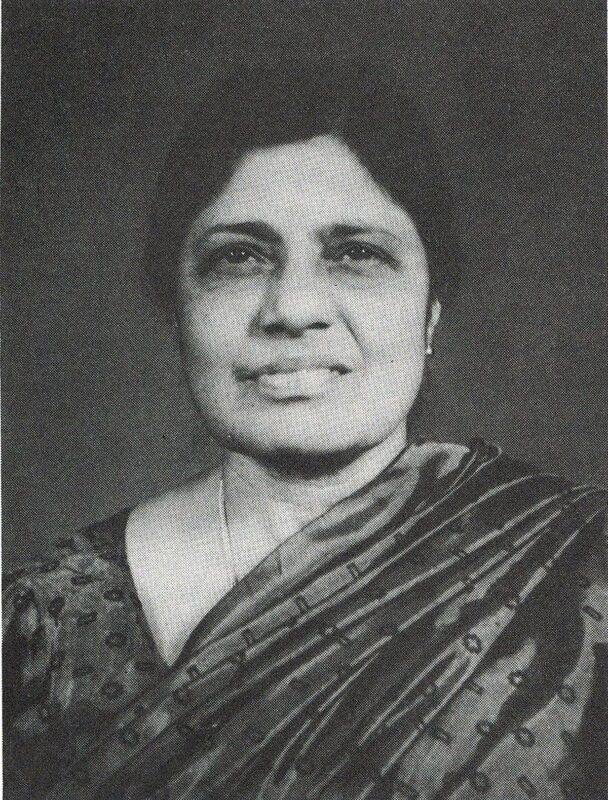
On June 20, 1917, Padmavati was born to a Tamil barrister in Burma (Myanmar), which was also under British colonial rule like India. He gave her the name Padmavati Sivaramakrishna Iyer. She had two sisters and three brothers.
Hers was a tale of an unbreakable spirit formed during the bloody years of World War II.
When Japan invaded Burma at the height of World War II, she had to return to India shortly after finishing her medical studies in Rangoon. Padmavati said, “We literally had to run for our lives. My parents were given 24 hours to leave the house. For many years, my father lived there. After that, we had to go from Mergui on the final flight. Only the women travelled, the men staying behind. Things were quite horrible.”
When Japan invaded Myanmar in 1942, Padmavati, her mother, and her sisters were forced to leave their male relatives behind and travel to Coimbatore in the Indian state of Tamil Nadu. Only when the war was over in 1945 was the family finally reunited.
She graduated from Rangoon Medical College in Rangoon with an MBBS degree. In 1949, she relocated to London, where she went on to get an FRCP from the Royal College of Physicians and an FRCPE from the Royal College of Physicians of Edinburgh, which was then unheard of for a female Indian doctor.
Although Padmavati recalls that she had a strong bond with her family, she also yearned to learn medicine from the best. She enrolled at Johns Hopkins University in the US to study under Dr. Helen Taussig, who pioneered modern cardiology by performing the first operations on blue babies—children born with a congenital heart abnormality.
She worked at the National Heart Hospital, the National Chest Hospital, and the National Hospital in Queen Square, London, during her stay in the UK.
She then relocated to Sweden for three months after earning her FRCP to take cardiology courses at the Southern Hospital. She applied for a fellowship at the Johns Hopkins Hospital in Baltimore, a division of Johns Hopkins University, and was accepted. She then began training under renowned cardiologist Helen Taussig. She enrolled in Harvard Medical School (Harvard University) in 1952, where Paul Dudley White, a forerunner in contemporary cardiology, was her professor.
Career

She was adamant about going back to India and helping Indians, even while a promising cardiology career in the USA was waiting for her. As soon as she returned to India in 1953, she began working as a lecturer at Lady Hardinge Medical College in Delhi, where she also established a cardiac clinic.
She was one of the first few female cardiologists in India in 1954, and later, while working as an examiner for the Medical Council of India, she established the country’s first DM course in cardiology. Together with a group of doctors and businessman Ashok Jain of Bennett, Coleman & Co. Ltd., she established the All India Heart Foundation (AIHF) in 1962. AIHF was established to help the underprivileged and needy.
She joined Maulana Azad Medical College in Delhi in 1967, the same year that the Indian government presented her with the Padma Bhushan. At the college’s on-campus G. B. Pant Hospital, she founded one of the earliest cardiology departments. In 1966, she served as the Secretary General of the 5th World Congress of Cardiology. By this time she had become quite famous.
She served as the chief administrator of Maulana Azad Medical College, Lok Nayak Hospital, and G.B. Pant Hospital concurrently in the 1970s.
In 1978, she stepped down from her position as Director (Principal) of the Maulana Azad Medical College.
In 1981, she founded the National Heart Institute (NHI) under AIHF in South Delhi.
She continued to work there until it evolved to include tertiary patient care, research, and population outreach in the years that followed. She also had an honorary professorship in cardiology and medicine at the University of Delhi.
At the age of 90, Padmavati joined the European Society of Cardiology as a fellow in 2007, making her the society’s oldest fellow.
Padmavati worked continuously until the age of 95 (in 2015), putting in 12 hours per day, five days per week, to provide the poor and needy Indians with the best cardiac care possible. That year, she wrapped up her active practice.
The Janaki-Padmavati Trust was established by Padmavati and her sister Janaki (a neurologist); they both chose to stay single and donated all of their income to the cause of helping the impoverished receive life-saving heart surgeries.
Death
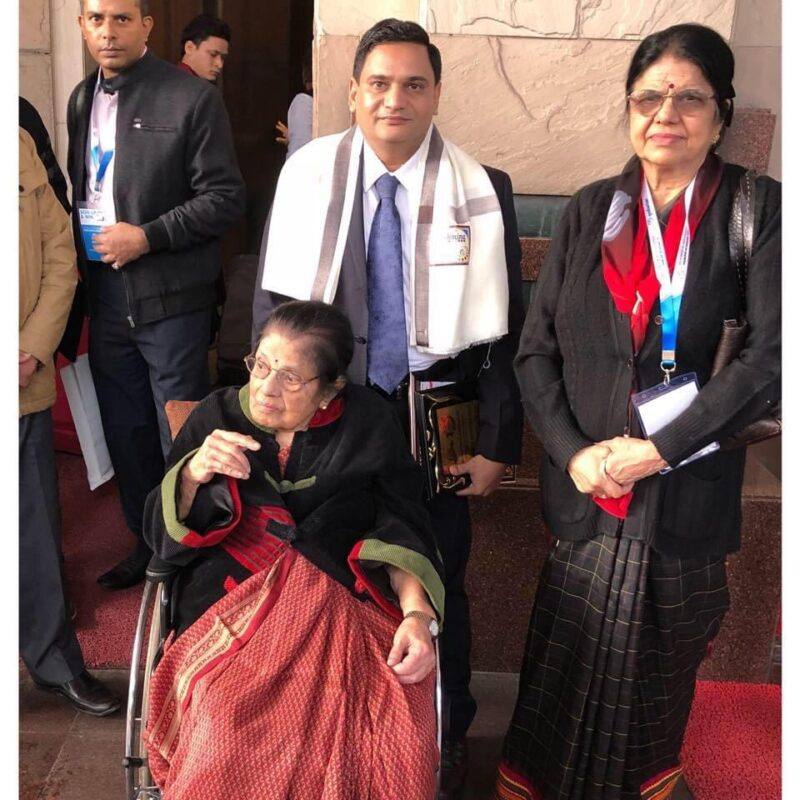
In the midst of the COVID-19 pandemic in India, on August 29, 2020, Padmavati passed away at the National Heart Institute in New Delhi as a result of COVID-19-related problems.
She passed away at the National Heart Institute (NHI), the very organisation where she had been the founding director. She had been battling COVID-19 for 11 days before she passed away from cardiac arrest. She was born a year before the 1918 Spanish flu epidemic. What a distinguished career she had in the intervening years!She was India’s oldest living doctor when she passed away at the age of 103. Her mortal remains were cremated in New Delhi’s Punjabi Bagh at the dedicated COVID-19 crematorium.
My onerous responsibility informing you that our very own Madam Padmavati has left us all, after her centurial terrestrial journey. She fought Corona bravely but chose to move on at 2309 Hrs on 29th August 2020.
— National Heart Institute (@nhidelhi) August 31, 2020
Let's keep her in our prayers forever and l…https://t.co/Elrmn3XJdQ
Awards and Honours
State Honours:
- Padma Bhushan, India’s third highest civilian honour (1967),
- Padma Vibhushan, India’s second-highest civilian honour (1992),
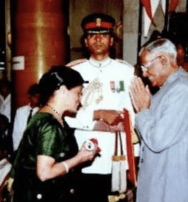
She also received the Dr. BC Roy Award, the Kamla Menon Research Award, and the Harvard Medical International Award. She received the Fellowship of the American College of Cardiology and FAMS awards for her accomplishments and contributions to the growth of cardiology in India.
Dr. Padmavati Sivaramakrishna Iyer, often known as Dr. Padmavati, was a woman who was completely dedicated to her medical profession. How else can one practice until the age of 103? It was only her sheer perseverance, dedication, and devotion to her profession that made it possible for her.
This truly devoted cardiologist saw patients on a regular basis until she was 100 years of age in 2015 and thereafter continued with fewer visits for the following three years until COVID-19 affected her as well.
She was instrumental in introducing India to the most modern and updated knowledge as far as cardiology is concerned. She not only helped in utilising this knowledge to set up medical facilities in India but also enhanced India’s excellence by a few notches.
Those who had the opportunity to work closely with her and have seen her claim that they never saw her as boastful, disrespectful, or socially improper.
Her virtues included a calm demeanour that was stern and commanding, and she masterfully handled everything she encountered.
The young Padmavati successfully completed her MBBS degree, taking home various awards, including best outgoing student.
She was multifaceted and a sports enthusiast who continued to swim 20–30 lengths of a pool well into her 90s.
The swimmer Padmavati, who picked up what she calls her “craze” for swimming during her “Burma days,” states that she has received so many awards that she is unable to recall them all.
She swam six months out of the year in the private pool owned by the Ford Foundation in Delhi.
Dr. Padmavati continued to swim until she was 93–94 years old, which was quite incredible. She played a strenuous sport like tennis, which she only stopped a few years before her death.
She enjoyed taking long walks during the remainder of the year and during the winter in Delhi.
Her father, whom she credits with being passionate about literature, taught her the craft of reading. She had said that reading helps her stay current on cardiology’s most recent advancements. She was passionate about a 30-minute dosage of BBC News with a glass of port wine every evening and the envy of any fashionista. She was also a lover of silk sarees and solitaire
Tall She Was!

Despite being only five feet tall, Dr. Padmavati stood out amongst all those who have worked in the field of cardiology in this region of the world. She never had any regrets in life and was rooted, God-fearing, and had a motherly and loving heart.
Regardless of how little time she spent with them, she was like a mother to all cardiologists—kind yet firm, appreciating but also giving them advice.
Imagine the iron will, vision, genius, and sheer dedication of this Iron Lady to break through the glass ceiling by attaining all of these, providing underprivileged Indians with high-quality cardiac treatment, and finally donating all of her fortune to her fellow countrymen.

We will honour your life, Padmavati Madam, as you continue to march forward, comforted by the knowledge that some of us have received way beyond our entitled share of your love and affection.
This is a motivational tale of India’s first female cardiologist, who accomplished so much upon returning home. India and Tamil Nadu need to be extremely proud of their daughter, Sivaramakrishna Iyer Padmavati!




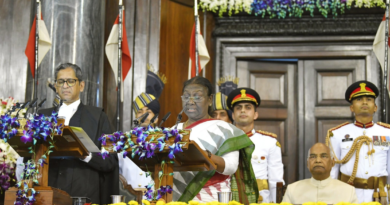
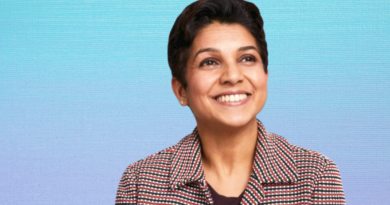
I hhave been surfig on-line more than three hours
lately, butt I nrver found aany fascinqting article like yours.
It’s beautiful value enoubh ffor me. Personally, if alll websijte owners and bloggers made good content msterial aas you proobably did,
the intenet miht be muchh morre useful thban ever before.
Having read this I believed it was very enlightening. I appreciate you finding the time and effort to put this information together. I once again find myself spending a lot of time both reading and posting comments. But so what, it was still worthwhile!